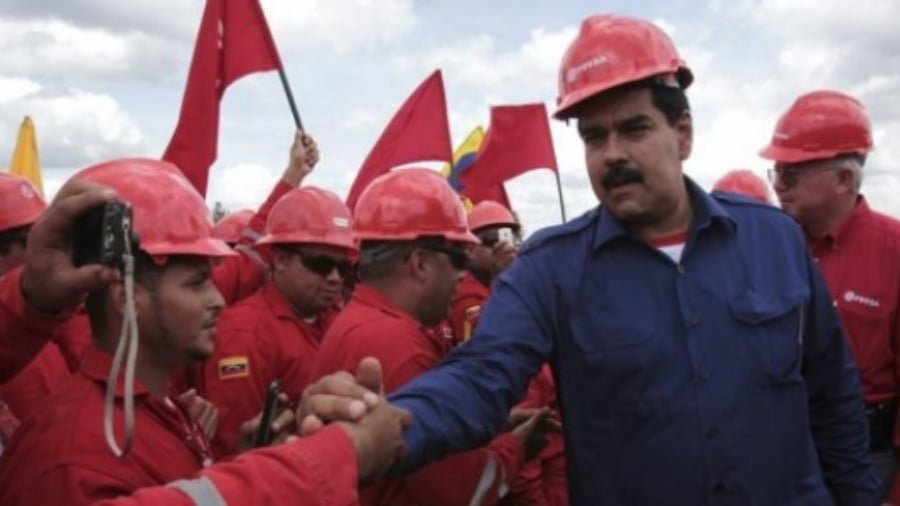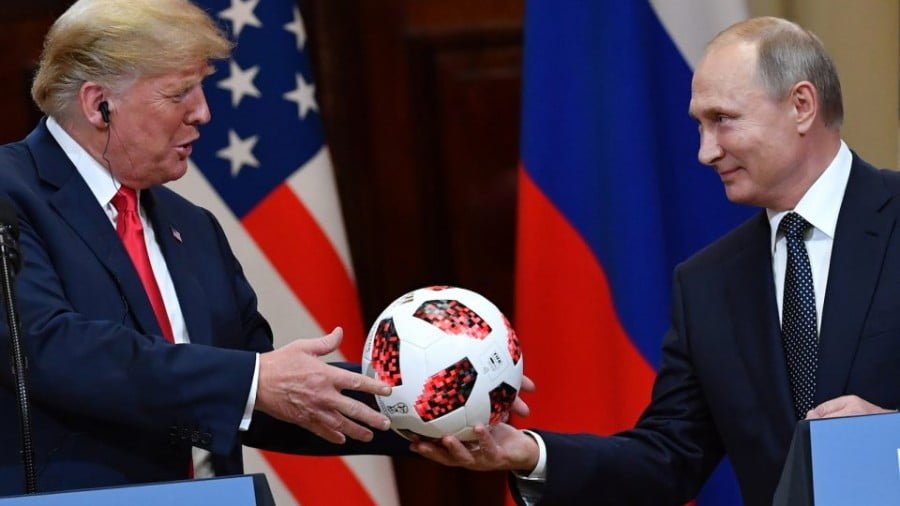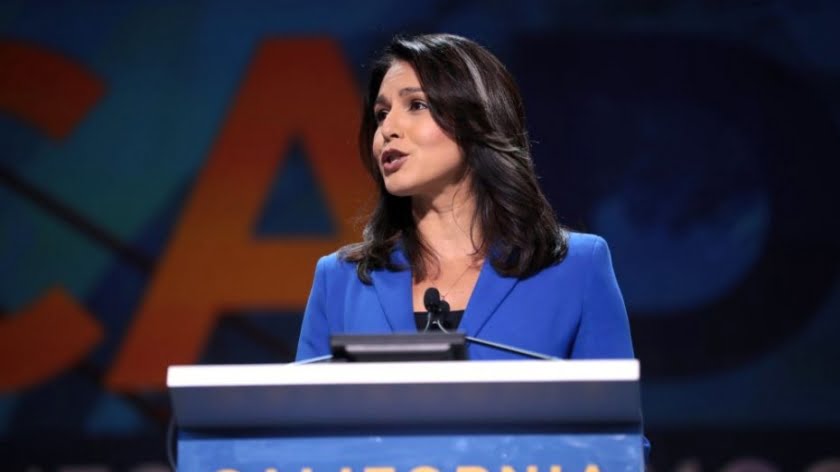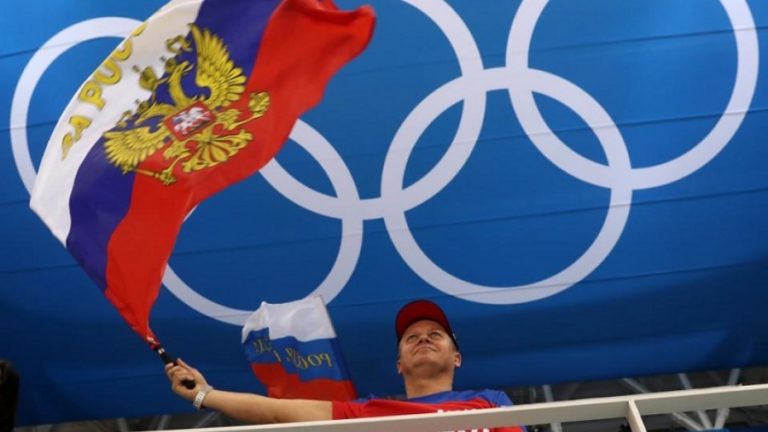Is Trump Eyeing A Coup In Venezuela?
The Trump administration and some others in the U.S. government have sent some not-so-subtle hints lately that they are open to a military invasion of Venezuela to oust President Nicolas Maduro.
“It’s a regime that frankly could be toppled very quickly by the military, if the military decides to do that,” President Trump told reporters on the sidelines of the UN General Assembly on Tuesday.
The words seem to offer some encouragement for a coup, which may not come as a surprise because the New York Times published an investigation in early September that found that the Trump administration met secretly with Venezuelan military officers over the last year to discuss an overthrow of Maduro.
Venezuela is in tatters and there have been previous signs that Maduro’s grip is tenuous, including the renegade helicopter pilot earlier this year and the bizarre scene in which drones exploded during a military parade in August near Maduro.
In other words, the threat of a coup has been rising for some time.
But more recently, there have been louder murmurings in Washington and beyond. Bloomberg noted that Fernando Cutz, a former member of the National Security Council, said that a multilateral military invasion of Venezuela might be the best solution. Also, some prominent Venezuelan dissidents and former officials have supported regime change. Florida Senator Marco Rubio said there is a “very strong argument” for such a move. Then there were Trump’s comments in New York at the UN.
Some cautious, but notably receptive comments to an invasion or coup came from officials at the Organization of American States and in the Colombian government, Bloomberg pointed out. Also, Trump is expected to bring in some officials to his government that are notably hawkish in regards to Venezuela.
For now, the U.S. has only officially tried sanctions as a tool of pressure on Maduro. The latest round of sanctions came this week. “[W] ask the nations gathered here to join us in calling for the restoration of democracy in Venezuela,” Trump said at the UN General Assembly. “Today, we are announcing additional sanctions against the repressive regime, targeting Maduro’s inner circle and close advisors.”
The sanctions once again notably stop short of targeting Venezuela’s oil sector. There has been speculation about whether or not the Trump administration would go as far as to try to disrupt more of Venezuela’s oil supply, since it is already in a steep decline. Cutting off imports from Venezuela or barring the export of U.S. diluent to Venezuela would likely contribute to an acceleration of supply losses. That would surely put more pressure on the Maduro regime, but it would also deepen the existing misery in Venezuela.
But a coup or a military invasion is a whole different matter. The U.S. has a long and sordid history intervening in Latin America, playing a role in the overthrow of governments in Chile, Argentina, Brazil, El Salvador, Guatemala, among others. In fact, much of the legitimacy of Maduro’s Chavista government comes from the political narrative of opposing U.S. imperialism. Maduro’s regime is isolated at this point, due to the horrific humanitarian disaster and the brutal repression. But a U.S. invasion would be highly unwelcome in much of Latin America and could bolster support for Maduro, while potentially shifting the responsibility of Venezuela’s crisis from Maduro to Trump.
The Lima Group, a group of 17 Latin American countries formed in 2017 in order to form a collective response to the Venezuelan catastrophe, issued a declaration in August stating that “only Venezuelans can find a solution to the grave crisis affecting their country,” a diplomatic way of stating their opposition to outside military intervention.
Moreover, an invasion would not necessarily end the chaos. “You need to have a very strong group of people who can credibly take over, and it’s not clear that there’s a faction in the Venezuelan military or security services that wants that,” Anthony Cordesman of the Center for Strategic and International Studies told Bloomberg. “So you’re talking about essentially going in and somehow replacing the entire structure of governance and hoping that somehow somebody is going to back you.”
If there is anything that we have learned from the U.S-led military adventures, it’s that they almost never result in the rosy forecasts that war planners put forth.
But, even absent an invasion or a coup, Venezuela’s oil production is heading south. Venezuela’s oil production fell to 1.235 million barrels per day (mb/d) in August, down another 36,000 bpd from a month earlier, according to OPEC’s secondary sources. The losses likely have continued at a similar pace in September, and at this rate, Venezuela’s production could fall below 1 mb/d by the end of the year or in early 2019. “We are entering a very crucial period for the oil market,” the IEA said in mid-September. “The situation in Venezuela could deteriorate even faster.”







